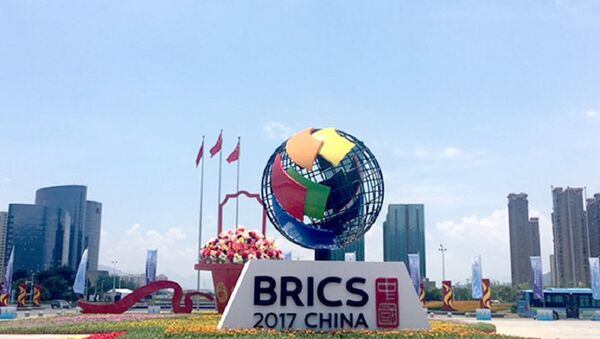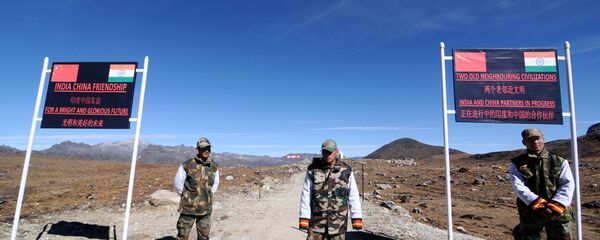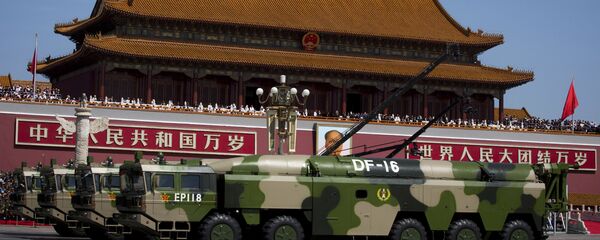India maintains that the Doklam Plateau belongs to Bhutan and that China's recent effort to build a road in the area violates a 2012 agreement and significantly alters the status quo.
China in its turn claims that Indian troops crossed the border at Sikkim in mid-June to stop the People’s Liberation Army (PLA) from constructing a road in Donglang.
Radio Sputnik discussed the border dispute between China and India with Dr. Rajeswari Rajagopalan, senior fellow and head of the nuclear and space policy initiative at the Observer Research Foundation, New Delhi.
“Much of the border between India and China has been disputed, but this part has been more unsettled although there is no formal agreement between China and India and nor have they officially disputed it, but there is a big dispute between China and Bhutan’s border line,” Rajagopalan said.
She further said that the crisis began when China began construction “illegally in Bhutan’s territory.”
Talking about how likely is the latest standoff going to develop into a military conflict, the expert said that, “China’s People’s Liberation Army just marked its 90th anniversary and Xi Jinping would not want to be seen like his country is a weak power, he would want to project China as a strong power, similarly considering the anti-India rhetoric that China has been doing it is difficult for it to back off now.”
If China gets access into Bhutanese territory through the Doklam Plateau, through the road that they are trying to construct, then the Chinese forces have easy access to the Indian narrow corridor which connects the Indian mainland to its seven northeastern states, so strategically its very sensitive for India to stop forces coming into that area, the expert said.
Bhutan asked Indian troops stationed in the area to come and intervene and Indian troops do have a strong presence in that region especially the Indian Air Force.
However, despite the rising tensions, the expert thinks that it may be possible to resolve the crisis in a diplomatic manner.
“India will not push this crisis into the agenda and I don’t think the BRICS countries would want to get entangled into a bilateral conflict with India and China over this because India also has a great influence over these countries,” she concluded.
BRICS is an association of five developing economies: Brazil, Russia, India, China and South Africa. The member states' objective is to enhance cooperation among themselves and strengthen the efforts of other international organizations working for world betterment in a number of spheres.




